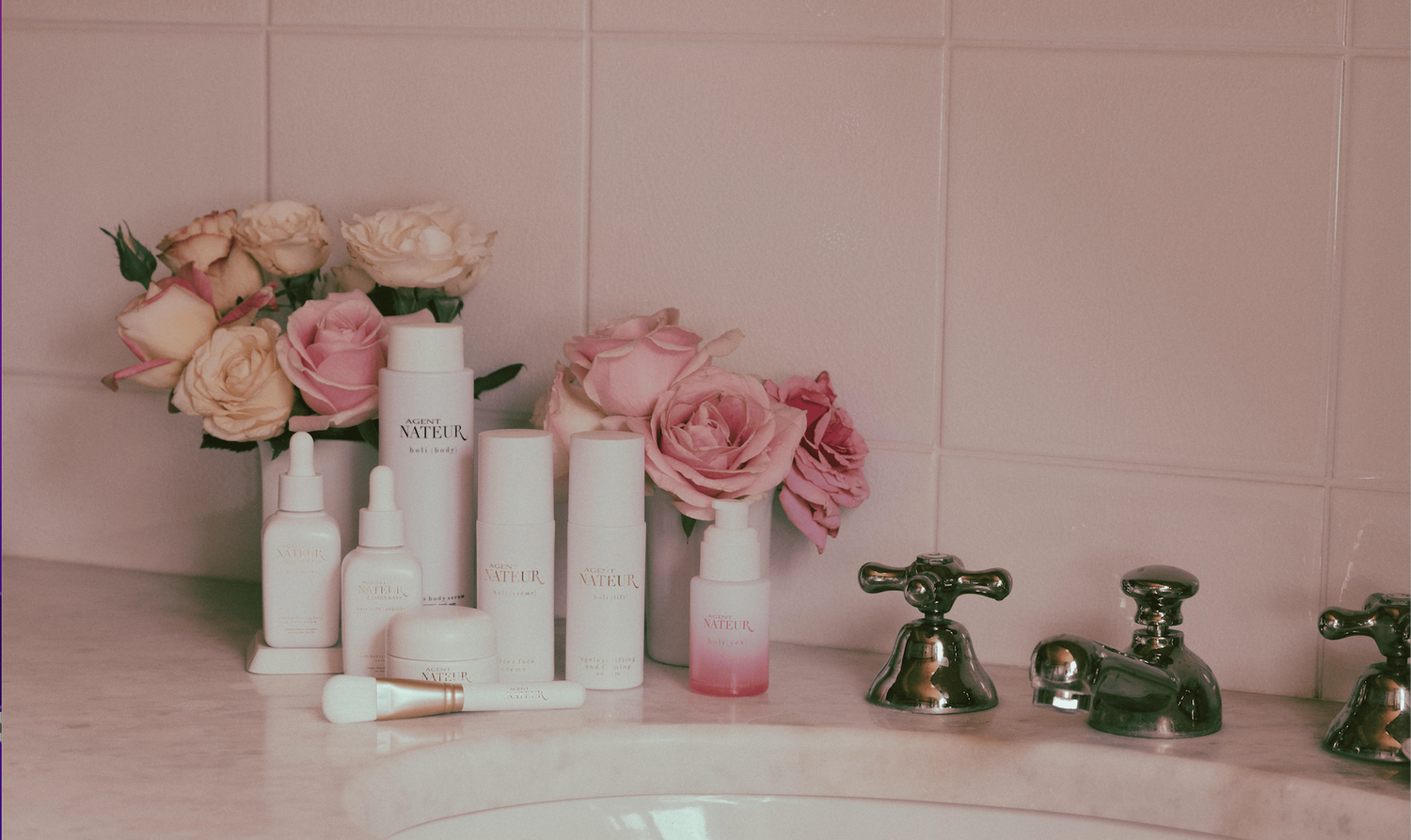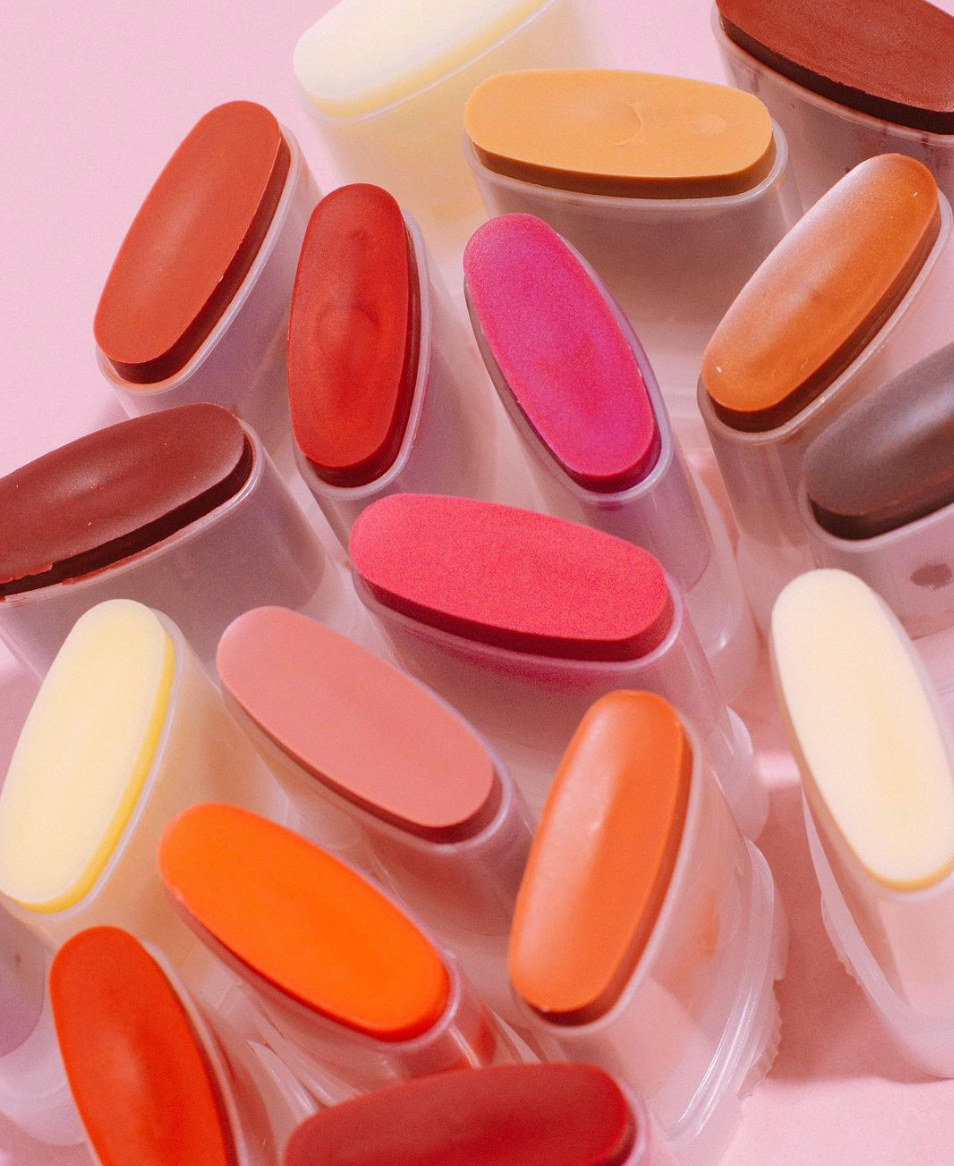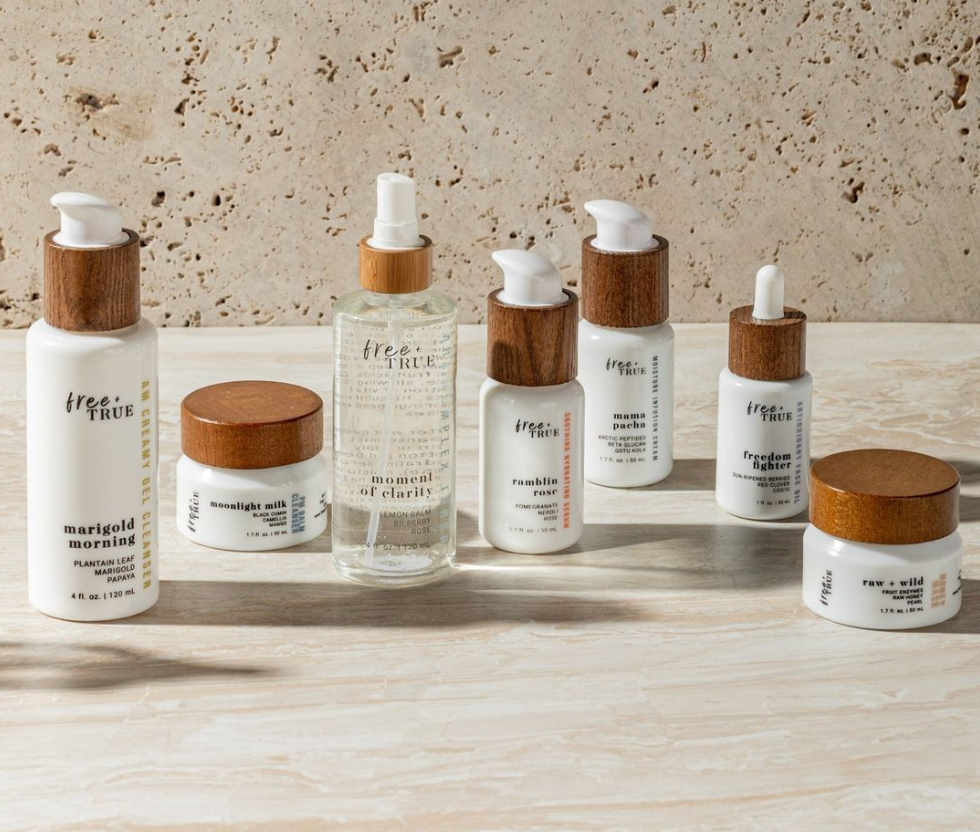
How many beauty products do you use everyday? I use over 22. I know, most of you wonder how one person can use so many but once I counted face, hair, and body cleansers, creams, serums, oils, and lotions in addition to deodorant, perfumes, and makeup, I could have opened a small pharmacy. What shocked me more was the number of carcinogens, endocrine blockers, skin irritants, parabens, phthalates, silicones, and artificial perfumes and dyes I was applying every single day. Since working at AILLEA I've become familiar with what scientists call the "Dirty Dozen" - a term for the top 12 chemicals used in cosmetics that should be avoided at all costs. I've summarized them for you down below but before it gets too scary, know that all our products DON'T include these. At AILLEA, we provide high-performing cosmetics that are safe and toxin-free. So get your products (and your trash) ready and read on to see which harmful chemicals are in your beauty cabinet:
1. BHA and BHT - Butylated Hydroxyanisole and Butylated Hydroxytoluene (tipoff right there if you can't pronounce the ingredient) - These are commonly found in moisturizers and other cosmetics as a preservative. They are known endocrine disruptors and can cause skin allergies, have been linked to kidney and thyroid problems, and can disrupt hormone function.
2. Coal tar dyes (p-phenylenediamine), toluene, hydroquinone, and phenol carbolic acid - These just sounds disgusting. Research links these neurotoxins with asthma, cancer and ADD/ADHD. Toluene has been banned by the European Union because of its toxicity. Hydroquinone has been banned in the UK, Japan, Asia, and Australia because of its cancer causing properties and links to organ failure. These are found in skin lotions, anti-aging creams, hair dyes, and other skin and hair products.
3. DEA and related ingredients like MEA, TEA - These are used to make shampoos, soaps, and other products creamy and foamy. They are also used in oil refineries to remove hydrogen sulphide from process gas emissions - are you sure your hair is THAT dirty? These are skin and eye irritants, have been linked to liver cancer, and have been declared toxic for the environment and for aquatic organisms - save Nemo and stop washing these down the drain!
4. Dibutyl phthalate - Use in nail polish as a "plasticizer" and in fragrance. This has also been banned in the EU, has been shown to cause developmental defects, and increase the ability for other chemicals to cause genetic mutations. The worse part - because it's used in fragrance, some companies don't have to list this in the ingredients because it's part of their "secret recipe." The secret is killing you isn't it?
5. Formaldehyde-releasing preservatives (DMDM hydantoin, ureas, methenamines, etc) - Just to start, formaldehyde is used to embalm a body to preserve it and reduce the speed of decomposition. If that doesn't convince you, read on. It is a known carcinogen, can irritate the skin and eyes, and cause asthma and nausea. It's used in hair straightening treatments and relaxers, baby shampoos, soaps, and many other cosmetics. It's also used in toilet bowl cleaners...enough said.
6. Parabens - These are the most widely used chemical in cosmetics so get ready to part ways with many of your beloved but harmful products. They alter hormone levels, have been linked to cancer, and have been found breast cancer tissue in alarming amounts.
7. Parfum (fragrance) - Just because the word is French doesn't mean it's elegant. This term actually includes about 3,000 chemicals and is used in perfumes, lotions, creams, and deodorants among other products. Of the 3,000 chemicals, most have not even been tested for toxicity. Those that have are can cause allergies, asthma, irritate the skin, and have been linked to reproductive issues.
8. PEG compounds - These are used to thicken and soften creams and lotions. They are also used as laxatives - not something you usually want to put on your face. It may be listed as propylene glycol in the ingredients, and has been known to cause harm to the nervous system, been labeled as a carcinogen, skin irritation, and organ and reproductive toxicity.
9. Petrolatum - This is a petroleum product, yes the same substance that gasoline is refined from. It's used in products to form a hydration barrier and makes lipsticks shiny. It has also been linked to cancer and because of its danger, the EU has restricted its use in cosmetics
10. Siloxanes - These are used in moisturizers, treatments, deodorant, and lotions to soften the skin and dry hair faster. They are also used in implants, windshield coating, and building sealants. It's a known endocrine disruptor, can cause uterine tumors, and can influence neurotransmitters, and not in a good way.
11. Sodium Laureth Sulfate - Even if you stay away from trends, jump on board the sulfate-free train! This is used as a foaming agent in shampoos, shower gels, and facial washes but also in laundry detergent and dish soap - tough on stains, even tougher on your skin! Sulfates can contain known carcinogens, can disrupt the nervous system, and are a skin irritant.
12. Triclosan - This is mainly used in deodorant as a preservative and anti-bacterial agent. It is suspected to be an endocrine disruptor and easily accumulates in your body to dangerous levels. It has been linked to cancer, and reproductive issues. As much as B.O. stinks, the pros of ditching this ingredient outweigh the cons. And don't worry, we've got a healthier deodorant anyway.
At AILLEA, we provide high-performing cosmetics that are safe and toxin-free. With this, we encourage you to make the switch and ditch the ugly chemicals for products made with nature's finest. We've scrutinized labels and searched all over the US for top brands that use only natural, high-quality, and chemical-free ingredients to create non-toxic beauty products so you can shop easy and beautify naturally.





